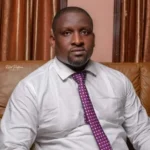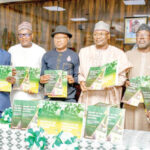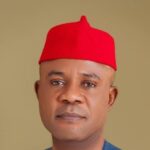The Resident Electoral Commissioner in Enugu State, Mr. Emeka Ononamadu, has said that a total of 86, 563 uncollected Permanent Voters Cards (PVCs) are currently in the state.
Briefing newsmen at the INEC Head Office in Enugu on Wednesday, Ononamadu said that the commission was developing strategies of PVC distribution which included “massive publicity and usage of community contact to link up with the real owners of the PVCs so that they could come forward to collect them.”
He said that although INEC had suspended fresh registration, transfer and replacement of PVC, the commission would still continue with PVC collection until one week to the general election, adding “It’s important for those who have not collected their PVCs after registration to do that on or before February 16, 2019.”
According to Ononamadu, “As at September 5, 2018 the PVC collection stood as follows: 2017 new PVCs: 54,813 collected out of 132,277 leaving us with a balance of 77, 464 uncollected PVCs. 2014/2015 old PVCs: 1, 400,161 has been collected out of 1, 412, 260 leaving us with 12, 099 uncollected PVCs. Therefore, the total of uncollected PVCs stands at 89,563 in Enugu state.”
He explained that besides the use of traditional rulers and religious leaders, one other measure being adopted by the commission for distribution of PVCs was to visit the wards to ensure that no PVC was left uncollected before the 2019 polls.
He said: “We are thinking of going round ward by ward; we’ve not started now because we want to make delivery of the remaining printed PVCs so that when we move, we move once so that we don’t waste resources by going to a place and returning and going again.
“However, we are also mindful of the attendant security challenges because PVC now is a gold mine for politicians who want to win elections. So we’re making arrangement in such a way that we can have adequate security that will guard our personnel who will visit those wards with the PVC.
“Each time, our team may want to visit a particular ward, there will be a massive announcement of our presence in that particular ward so that those who registered in such ward can come there and collect their PVCs.
“By the time we complete the first round and see the balance of cards left, we will know whether it would be expedient to do another round, otherwise the remaining will now come to our local government areas or official registration centres for people to continue to collect their PVCs.”
On the apparent confusion that may arise from using one ballot paper for 91 political parties, Ononamadu said INEC being a pro-active organization might be saved the likely difficulty by the fact that “not all the political parties will field Governorship candidate and presidential candidates, senatorial candidates,” noting that the commission would be “looking at whether to print for only those that have indicated interest to run for that election. That will reduce the length.”
He added: “I monitored the German election, over 40 political parties participated in that election. And I have a specimen of their ballot paper. It is not that impossible, depending on how you arrange the ballot paper. The problem is about the level of awareness and voter education so that people will not void those ballot papers much.”

 Join Daily Trust WhatsApp Community For Quick Access To News and Happenings Around You.
Join Daily Trust WhatsApp Community For Quick Access To News and Happenings Around You.


